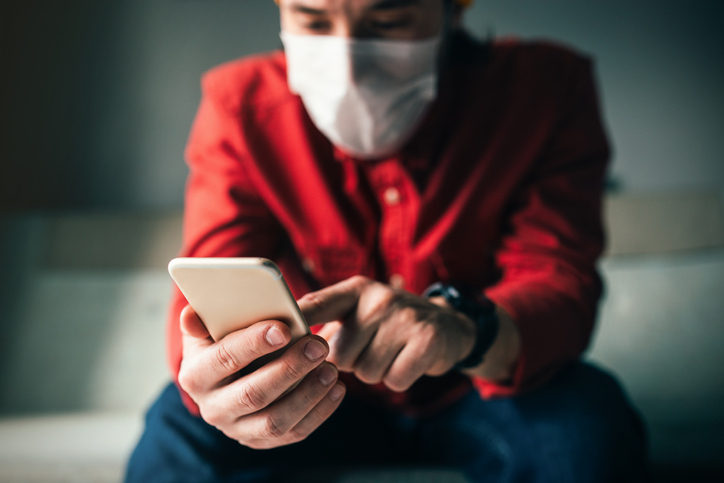The Plastics Paradox, by Chris DeArmitt (Phantom Plastics, LLC, Terrace Park, Ohio), 2020, 186 pages, ISBN: 978-0-9978499-6-7; $6.99 on Amazon (Kindle Edition)
Plastic. With the arrival into modern culture of this ingenious product in the mid-20th Century, the word started to become a pejorative for things seen as phony, ugly, sterile, and plain unnatural.
To be “plastic” was to be unhip, ersatz, an imitation. That’s why an unknown black musician apparently derided Mick Jagger’s singing as “plastic soul” sometime in the mid-60’s. Noting the quip, Paul McCartney cheekily derided an inferior studio take of the Beatles’ rocker “I’m Down” as “Plastic soul, man. Plastic soul.” David Bowie would describe his artistic left-turn on 1974’s funky, Philly R&B-influenced Young Americans LP, “the definitive plastic soul record.”
Along with becoming shorthand for the soullessness of modern consumer society, with the birth and growth of the environmental movement, plastic began being denigrated as a unique threat to the Earth.
Today, many people just assume plastic is horrible for the planet. Governments big and small try to, and sometimes successfully do, ban “single-use” plastic bags and straws, supposedly to protect the environment. Just a couple years ago a guy who plays a Marvel superhero was publicly shamed on social media by a guy who plays a DC Comics superhero for being photographed holding a plastic water bottle in a gym for an advertisement for Amazon, for which the Marvel superhero immediately issued a groveling apology.
Plastics: Good Not Bad
Why do so many people hate plastic, and is this hate justified? Is plastic a serious threat to Gaia and all the fish and turtles that inhabit our oceans? Are you a big, dumb, thoughtless ecocidal maniac for taking a swig from a Fiji or Evian bottle while riding your Peloton, which also contains plastic, at home?
In his new book, The Plastics Paradox: Facts for a Brighter Future, Chris DeArmitt, Ph.D., answers these questions with a definitive “no!” Indeed, in 186 easy to read pages, DeArmitt shows plastics are pretty remarkable, a giant boon to humankind, and the overwhelming available science tells us that plastic products are actually better for the environment than their alternatives.
DeArmitt, a plastic materials scientist who has done work for Apple, Disney, HP, iRobot, and Procter & Gamble, among others, cites more than 400 scientific reports and articles in this book to debunk many commonly-held misconceptions about plastics and show the reader why “everything you have been told about plastics and the environment is a lie.”
Early in the book, DeArmitt demonstrates just how ubiquitous plastics are in our lives and how modern civilization would be unthinkable without them. Cell phones, clothes, computers, containers, cooking utensils, toys, protective outfits for soldiers and first responders, medical devices, plumbing, wiring for electricity, vehicle parts, construction materials, machine parts, the list is almost endless. “Without plastic,” DeArmitt notes, “we would have no electricity, no cell phones, no laptops or computers of any kind, and no internet to use them on.”
Plastics are Green
He begins his case by noting that plastic bags, bottles, and containers are pretty dang green compared to alternative choices like glass, metal, cotton, or paper because we use far less material and consume far less energy to create them.
Replacing plastic products with something else would create more waste, indeed three-to-four times as much waste, on average. Plastics only account for 13 percent of all waste created, according to the U.S. Environmental Protection Agency, far less than paper or cardboard in comparison.
You might have heard horror stories about the “Great Pacific Garbage Patch,” supposedly a giant floating blob of marine debris that is assumed to be composed of bottles and bags and other plastic detritus from terra firma. DeArmitt explains most of materials are, in fact, discarded fishing nets and other forms of waste from fishing boats.
Although, DeArmitt concedes this is still a major problem, he notes the blame should be placed not on plastic, but on human behavior, and argues policies and laws should be changed to incentivize fisherman to bring their trash with them back to dry land.
Plastics Aren’t Naturally Stable
It is taken by most as a self-evident truth that plastics take around 1,000 years to degrade, but DeArmitt notes this is extremely unlikely because plastics are fairly unstable.
In an experiment where a standard polyethelene bag was left outdoors, it disintegrated into pieces after just nine months. In reality, he notes, standard plastics “degrade outdoors in a few years, or even sooner, unless they are stabilized.”
“The public has already formed strong opinions about plastics, but those opinions are based on sensationalist journalism with no scientific basis whatsoever,” DeArmitt writes. “Plastics have been tried and convicted without evidence…[but] it turns out that plastics are a force for good. “We can use them to enable our modern lifestyles and to protect the environment at the same time.…” says DeArmitt. “They reduce waste, reduce carbon dioxide emissions, reduce oil consumption and are usually the greenest choice. That’s what the science shows us.”
‘Immeasurable Benefit’
There is no denying the immeasurable benefit plastics have provided humankind over the 75-plus years since the end of the Second World War.
It is to DeArmitt’s credit that, in a book written to be accessible to anyone with a high school education, he provides a through accounting of those benefits, and, in the process, demonstrates just how green plastics really are.
Tim Benson (tbenson@heartland.org) is a policy analyst at The Heartland Institute.
